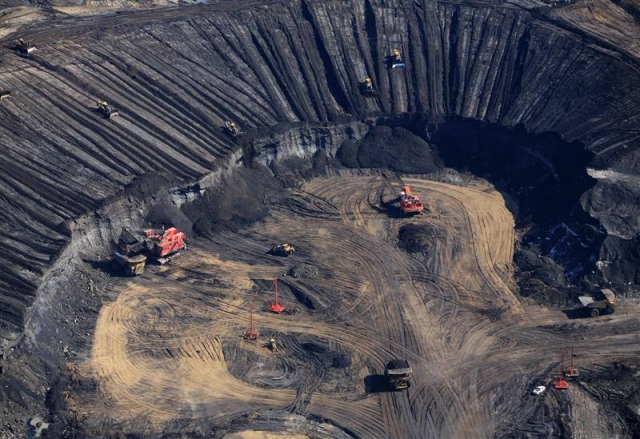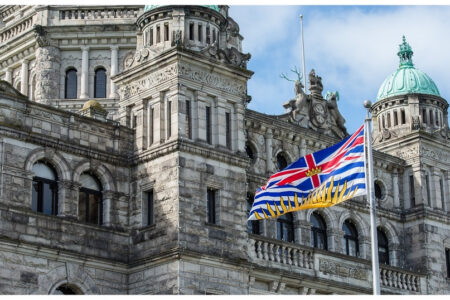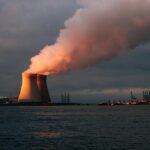Canada: "A Backwater of Ignorance"
On April 14, provincial and territorial leaders are to meet in Quebec City for a special Council of Federation meeting to talk about climate change. Some prominent Canadians — and many others, less prominent but equally concerned — plan to attend a march there on April 11, in an attempt to get a message to our politicians about the urgent need for action.
“I am supporting this march because it’s time for governments to tell us that they recognize the new economic reality – the changing world attitudes to oil and its volatility, the world-wide increase in renewables, the fact that, despite lack of subsidies, there are more Canadian jobs now in renewables than in oil,” said award- winning author Margaret Atwood.
“There has never been a better time to transform not just how we generate power but who benefits from that power,” said author and journalist Naomi Klein. “With prices plummeting, the oil and gas industry is in crisis, and they are demanding a fresh wave of government handouts and subsidizes. That’s insane. Public money does need to be spent, but it needs to go towards building a clean and just economy — before climate change overtakes us.”
“We need to leave the oil in the ground and move to wind and solar,” said actress and Order of Canada recipient Tantoo Cardinal. “It’s time our Prime Minister and our premiers went beyond fear, greed and control and use this opportunity to weave a new paradigm. Your grandchildren will thank you.”
The Guardian and the Washington Post are beginning to publish more information about climate change; a few more people — even Canadians — are becoming aware of the looming dangers. Some of the articles explain why so many of us refuse accept any personal responsibility for ensuring that needed change occurs.
The House of Bishops of the Church of England wrote a lengthy open letter in preparation for the upcoming British elections, entitled “Who is My Neighbour?” and discussing what should be considered by voters. Here is one quote from it: “Most of all, we need an honest account of how we must live in the future if generations yet to come are not to inherit a denuded and exhausted planet.”
Ironically, the letter triggered controversy over the role of religion in discussing issues of importance to humanity.
One of Canada’s most informed, articulate and responsible politicians worries that Canada will not contribute in any meaningful way to international efforts to curb climate change. Here’s what Elizabeth May has to say about the upcoming “Conference of the Parties” on climate change in Paris, France, in December of this year:
“Globally, nations are engaging, with varying degrees of enthusiasm and ambition, in the United Nations Framework Convention on Climate Change (UNFCCC) and the deadline negotiations set for December 2015 in Paris. It will be the 21st Conference of the Parties (COP21); the deadline for a workable comprehensive treaty.
“Deadlines have come and gone. We had a Kyoto deadline (cancelled and then reneged), a Copenhagen deadline (undertaken by our current Prime Minister so the public claim is still made that “we are committed to the target,” while it is clear it will be missed by nearly 100%). This global deadline is no longer about politics and multilateral negotiations. It is about immovable red lines in atmospheric chemistry. In other words, the atmosphere is not negotiating with humanity. This is a deadline we, “we” meaning the community of nations, cannot afford to miss.
“The odd thing is how little Canadians (the other political parties and media) are aware of the process. This was brought home to me when France’s President Francois Hollande spoke in Parliament in early November 2014. I was asked by reporters what I expected to hear in his speech. I suggested that as well as terrorism and the economy, he would be likely to focus on the climate crisis and the upcoming conference. Reporters responded with a blank stare at that.
“After his speech, which did devote a significant portion to the issue of climate, reporters asked me if I had seen his speech before delivery. They believed I must have seen it in order to predict the speech so accurately. Had they been paying any attention to France’s role as host country, it would have been as obvious to them as it was to me. But, as the only opposition MP to have attended the climate negotiations over the last few years, I am getting used to Canada being unaware. While the NDP and Liberal MPs do not attend, neither do Canadian reporters. As a gathering consensus builds internationally, Canada, embarrassingly, appears to be a back-water of ignorance.
“With an election October 19 and the most critical climate negotiations ever beginning within six weeks, everyone – Canadian political parties, the media and the citizenry – better get up to speed rapidly.
“The goal of the process is to have a treaty by 2015, coming into effect by 2020 to avoid allowing global average temperature to cross a red line. That red line is a degree of warming of 2 degrees C global average temperatures above levels prior to the Industrial Revolution. No one knowledgeable about climate science thinks 2 degrees C is a safe concentration. The world will experience increasingly dangerous severe weather events at 2 degrees. And no one familiar with Greenhouse gas (GHG) emission rates thinks the goal will be easy.
“What everyone can agree upon is that it is essential if we are to avoid a level of warming that itself triggers increasing self-accelerating warming referred to as “run away” climate change.
“While Canada has been at the table in the annual meetings of the UNFCCC, under Stephen Harper’s instructions, we make no progress. In fact, Canada has undermined negotiations in critical ways since 2006.
“Not only has the federal government ignored its obligations, undertaken by Stephen Harper personally at COP15 in Copenhagen, Canada has sabotaged larger global progress. It was Canada that first started fiddling with the base year. The entire climate framework in 2006, at the point the Conservatives formed a minority government, was predicated on all nations using the same base year against which reductions were pledged. All countries on earth used 1990 as the base year. But at the first set of meetings following Stephen Harper becoming prime minister, Canada abandoned Kyoto and announced we would reduce by 20% below 2006 levels by 2020. We later weakened the shell game opened the door for other countries, notably the US, to play the same game. We have blocked progress at every meeting.
“Harper’s administration made us the worst country in the room, but now, with Abbot as Australian PM, we have competition. Tragically, there is no competition for best country in the room. The process is lacking any leadership. There is a big mushy middle. The EU, which used to lead, is increasingly compromised by its own coal-burning members and economic woes. The US talks a good game, but in negotiations, it operates more as a brake than an accelerator.”
May mentioned the Canadian federal Election on October 19 of this year: it’s time to start thinking about which party’s policies are most likely to turn us toward a liveable future — in a biosphere that can best support us in the long term. It’s a very, very long time before our sun is expected to go super-nova. Why destroy ourselves before then?
























